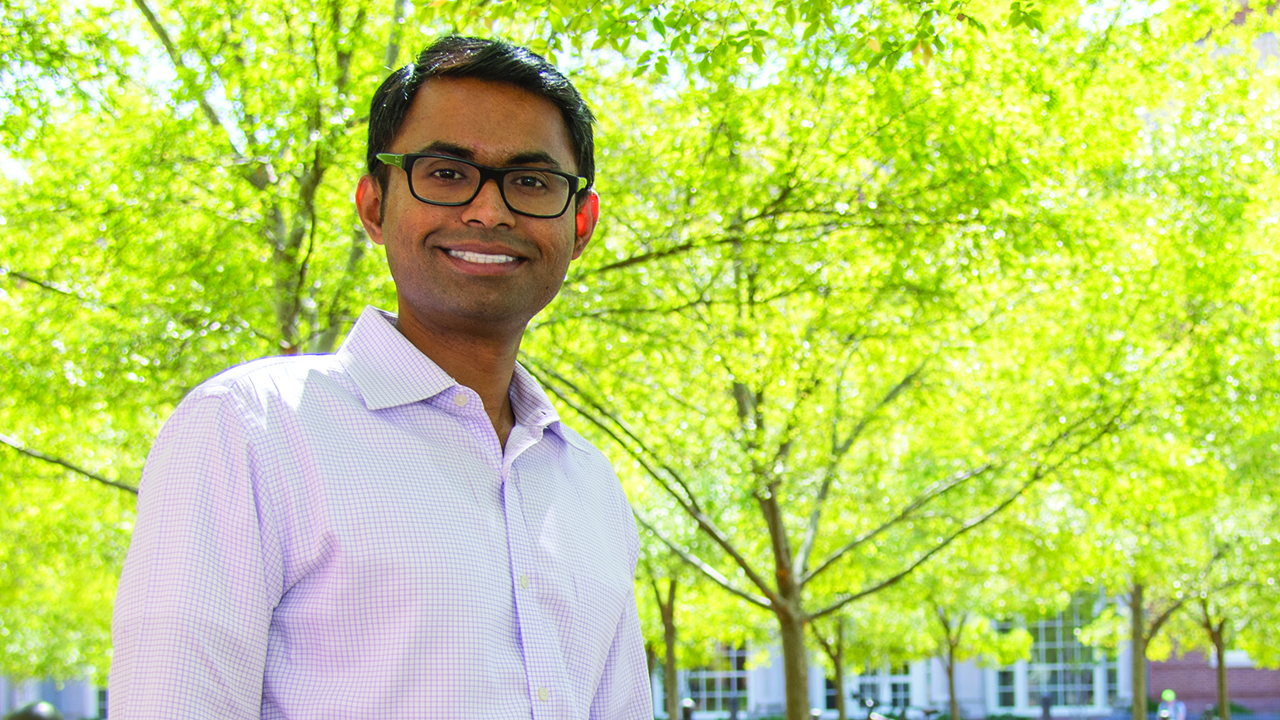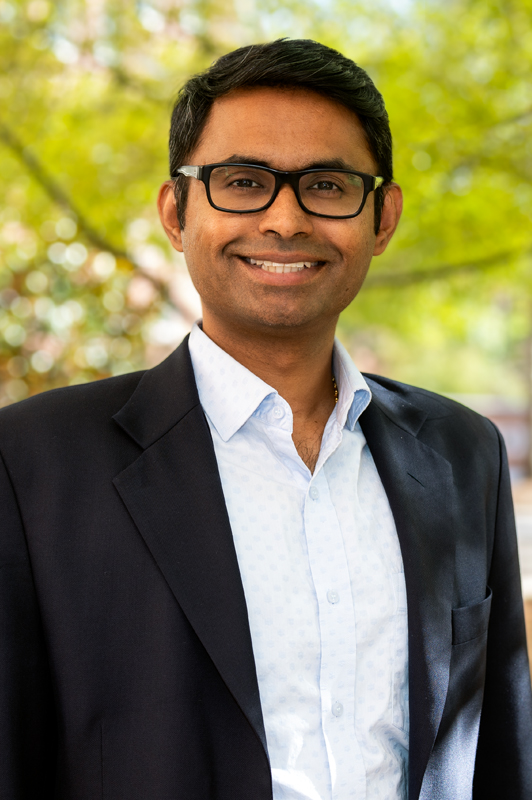Assistant professor in aerospace engineering earns prestigious NSF CAREER Award
Published: Jan 11, 2022 9:55 AM
By Joe McAdory
Vrishank Raghav, an assistant professor and Ginn Faculty Achievement Fellow who directs the university’s Applied Fluids Research Group in the Department of Aerospace Engineering, has been named as a recipient of the 2022 Faculty Early Career Development (CAREER) Award from the National Science Foundation (NSF).
The CAREER Award is the NSF’s most prestigious award in support of junior faculty who exemplify the role of teacher-scholars through outstanding research, excellent education, and the integration of education and research within the context of the mission of their organizations. He is the first Auburn University Department of Aerospace Engineering faculty member to receive the award while at Auburn.
“I am pleasantly surprised and humbled,” said Raghav who joined the faculty in 2017. “This award would not have been possible without the support system provided by the department, college, and university.”
Brian Thurow, chair of aerospace engineering, is excited for Raghav’s recognition on a national scale.
“An NSF CAREER Award is often considered as the pinnacle of success for a faculty member in the early stages of their career, and is clearly indicative of a bright future,” he said. “A hallmark of Dr. Raghav’s research is his ability and interest in leveraging multidisciplinary concepts to explore a diverse range of fluid dynamic problems of relevance to both aerospace and biomedical systems.”
Raghav’s CAREER Award, including $500,000 over five years, will provide support for his integrated research and educational activities on “Fluid-Structure Interactions in Pulsatile Flow.”
Fluid-structure interaction is ubiquitous in nature and engineering applications, for example, in natural flight, physiological flows, biomechanics, aeronautics, space exploration, among others. In this project, Raghav will apply concepts and techniques from aerospace engineering to understand how pulsating flow of blood impacts the durability of heart valve replacements.
What’s the main problem? Flutter.
“Aerodynamic and aeroelastic flutter is a well-known problem in aerospace engineering,” said Raghav. “In aeronautics, flutter is undesirable vibrations of an elastic structure caused by coupling between the flow and structural motion, and unconstrained flutter can lead to fatigue failure of critical flight components. Similarly, flutter or vibrations of artificial heart valve leaflets contributes to early valve deterioration through fatigue failure.”
To address this, Raghav will establish a new paradigm in higher-fidelity experimental fluid-structure interaction measurements using light-field imaging to simultaneously quantify time-resolved 3D flow fields and the associated structural motion. This method will gather measurements to derive scalable parameters to classify regimes, or levels, of flutter in pulsatile blood flow, then identify the associated flow physics mechanisms.
Through the research, Raghav will learn how pulsating blood flow impacts heart valve leaflets, and ultimately demonstrate how this accelerates wear and tear on the replacement devices.
“Our hope is to enable the design of robust leaflets that won’t flutter and reduce the chance of failure in the long-term,” Raghav said. “At the end of the day, this is about saving and improving the quality of lives.”
Furthermore, the NSF CAREER Award also focuses on the integration of research and education. For Raghav, research and education work symbiotically to not only develop new technologies to improve lives and medical practice, but also educate students and train future researchers to expand on these ideas.
“All faculty are engaged in research to help society in some way,” Raghav said. “When we educate and train students, we want them to be next-generation problem solvers who will continue addressing such societal challenges by applying their critical thinking skills.”
Raghav aims to adopt a three-pronged approach for education including the implementation of novel game-based learning techniques to improve engagement in university education and research, among others.
Thurow said Raghav’s energy and enthusiasm for multi-disciplinary research is, “Well integrated with his passion for teaching and desire to motivate students in unique ways.”
“Dr. Raghav regularly incorporates active, hands-on activities into his classes as a means to both energize student learning and demonstrate the practical application of the material covered in class,” said Thurow, who noted Raghav led the department’s undergraduate research experience initiative. “Dr. Raghav is a rising star and leader in the department with an ambitious vision for his career where research and educational goals are well integrated.”
Raghav now joins an exclusive list of NSF CAREER Awardees at the Ginn College of Engineering. Recent honorees include Jack Montgomery (civil and environmental engineering), Debswapna Bhattacharya (computer science and software engineering), Lauren Beckingham (civil and environmental engineering), Majid Beidaghi (materials engineering), Pengyu Chen (materials engineering), and David Roeuche (civil and environmental engineering).
Media Contact: , jem0040@auburn.edu, 334.844.3447


